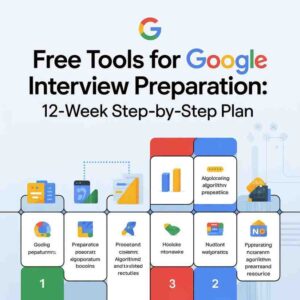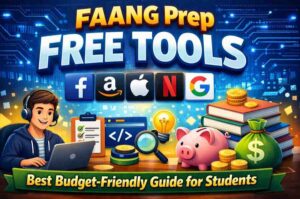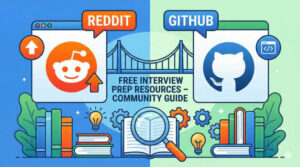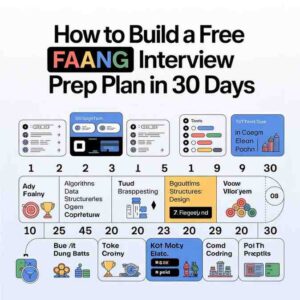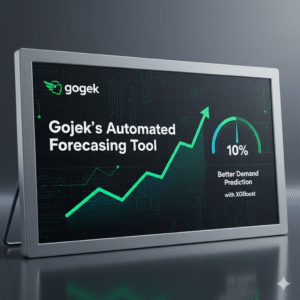Preparing for a Product Manager (PM) interview can be challenging, especially when you’re not sure what to expect. Understanding how to ace Product Manager interview rounds is crucial for landing that dream job. In this guide, we’ll walk you through seven common types of interview rounds you’ll encounter, complete with sample questions and answers to help you get ready.
7 Common Product Manager Interview Rounds
Detailed Paragraphs on Each Round:
1. Product Design Questions:
Objective: These questions assess your ability to think like a product manager by testing your product design skills. You’ll be asked to design a product or feature, focusing on user needs, functionality, and prioritization.
Example: You may be asked to design a new social media platform for professionals. You’d need to consider the target audience, key features, user interface, and how to differentiate it from existing platforms.
2. Behavioral Questions:
- Objective: Behavioral questions evaluate your soft skills, such as teamwork, leadership, and conflict resolution. These questions are often framed around real-life scenarios you’ve encountered in your professional life.
- Example: A typical question might be, “Tell me about a time you led a team through a challenging project.” Your answer should highlight your leadership qualities, decision-making process, and how you managed the team to achieve the desired outcome.
3. Product Strategy Questions:
Objective: These questions test your strategic thinking capabilities. You’ll need to demonstrate your understanding of market positioning, competitive analysis, and long-term planning.
Example: You might be asked how you would position a new product against existing competitors. Your answer should reflect your understanding of market dynamics, customer segmentation, and value proposition.
4. Analytics Questions:
- Objective: Analytics questions are designed to evaluate your ability to work with data. You’ll need to demonstrate how you define key metrics, analyze data, and use insights to inform product decisions.
- Example: A common question might be, “What metrics would you use to measure the success of a new feature?” You’d need to identify relevant KPIs and explain how you would track and interpret the data to assess the feature’s performance.
5. Technical Questions:
Objective: While not always a requirement, technical questions assess your understanding of technical concepts, system design, or your ability to collaborate effectively with engineering teams.
Example: You may be asked to explain how an API works or to design a system that supports a specific product feature. This round tests your technical fluency and ability to communicate complex ideas clearly.
6. Estimation Questions:
- Objective: Estimation questions gauge your ability to make educated guesses with incomplete information. These questions often involve calculating market sizes, user adoption rates, or resource needs.
- Example: A typical question could be, “Estimate the number of coffee cups sold in New York City in a day.” You’d need to outline your assumptions and approach, showing logical reasoning and numerical skills.
7. Product Sense Questions:
Objective: Product sense questions evaluate your ability to understand user needs, identify opportunities, and create solutions that address those needs effectively. This round emphasizes user empathy and creative thinking.
Example: A common question might be, “How would you improve a product like Facebook’s News Feed?” You’d need to suggest improvements based on user pain points and describe how those changes could enhance the user experience.
These rounds collectively test a wide range of skills necessary for a Product Manager role, ensuring that candidates are well-rounded and capable of handling the diverse responsibilities of the position.
1. Product Design Questions
Purpose: These questions test your product thinking skills, including defining requirements, generating ideas, and prioritizing features.
Sample Question: Design X product for Y user.
Example Answer: If asked to design a new fitness app for busy professionals, start by identifying key user needs such as time efficiency, personalized workouts, and progress tracking. Then, brainstorm features like quick 10-minute workout options, AI-based workout recommendations, and simple progress charts. Prioritize features that directly address the user’s pain points.
2. Behavioral Questions
Purpose: Behavioral questions assess your soft skills, ability to work in teams, handle conflicts, and demonstrate leadership.
Sample Question: Tell me about a time you faced failure.
Example Answer: During a project at my previous job, we launched a feature that did not meet user expectations. I led a retrospective to understand what went wrong, took ownership of the mistakes, and worked with the team to pivot quickly by implementing user feedback into the next iteration. The revised feature received much better user reception.
3. Product Strategy Questions
Purpose: These questions evaluate your strategic thinking abilities, such as setting goals, developing strategies, and analyzing competition.
Sample Question: What main changes would you make to [product]?
Example Answer: If asked about changes to a social media app, I might suggest enhancing the algorithm to prioritize content from close friends over general posts. This could improve user engagement by making the feed more personal and relevant. I’d back this suggestion with data on user behavior and content interaction patterns.
4. Analytics Questions
Purpose: These questions test your ability to define, analyze, and reason with metrics and data.
Sample Question: What metrics would you use to measure success for X product?
Example Answer: For a subscription-based music streaming service, key metrics might include user retention rate, average time spent listening per session, and the number of songs saved to playlists. These metrics give insights into user engagement and satisfaction, which are crucial for a subscription model.
5. Technical Questions
Purpose: Some companies assess technical depth through system design or coding questions.
Sample Question: Explain X technical concept.
Example Answer: If asked to explain API integration, you might say: “An API (Application Programming Interface) allows different software applications to communicate with each other. For example, integrating Google Maps API into a travel app allows users to view maps and directions without leaving the app. It simplifies development by using existing services rather than building them from scratch.”
6. Estimation Questions
Purpose: These questions evaluate your ability to make decisions with incomplete information, such as estimating market size or user interest.
Sample Question: How many golf balls can fit in a 747 airplane?
Example Answer: First, estimate the volume of the airplane’s cargo hold. Assume the hold is a rectangular space and approximate the dimensions. Then, estimate the volume of a single golf ball. Finally, divide the total cargo volume by the volume of a golf ball. Clearly state your assumptions to demonstrate your logical approach.
Note: This type of question is becoming less common but is still worth preparing for.
7. Product Sense Questions
Purpose: These questions evaluate a candidate’s ability to deeply understand user needs, identify opportunities, and develop compelling product solutions.
Sample Question: How would you improve the Facebook News Feed?
Example Answer: To improve the Facebook News Feed, I would focus on increasing content relevance by enhancing the algorithm to prioritize posts from close friends and topics of interest. Additionally, I’d introduce a feature allowing users to customize their feed by selecting specific themes or categories they care about most, ensuring a more personalized experience.
Conclusion: How to Ace Product Manager Interview Rounds: A Complete Guide
Mastering how to ace Product Manager interview rounds is about understanding what each type of question is designed to assess and preparing thoughtful, structured responses. Whether you’re designing a new product, strategizing market positioning, or demonstrating your ability to lead a team, these sample questions and answers will help you prepare with confidence. Good luck with your interview!








